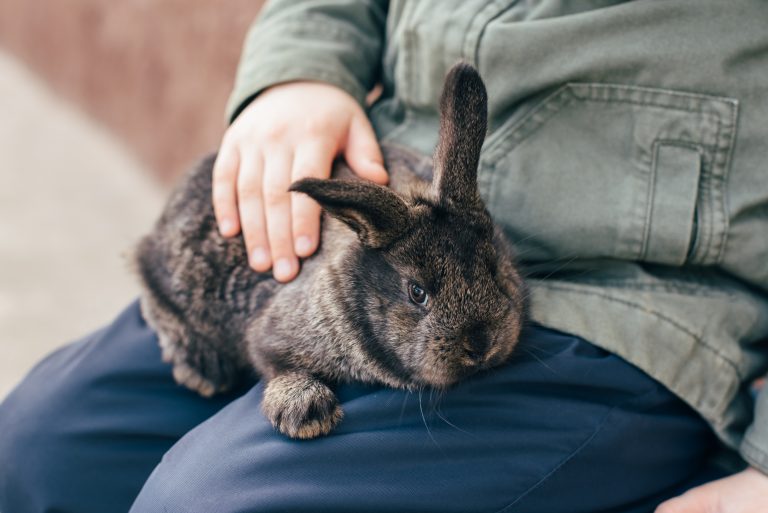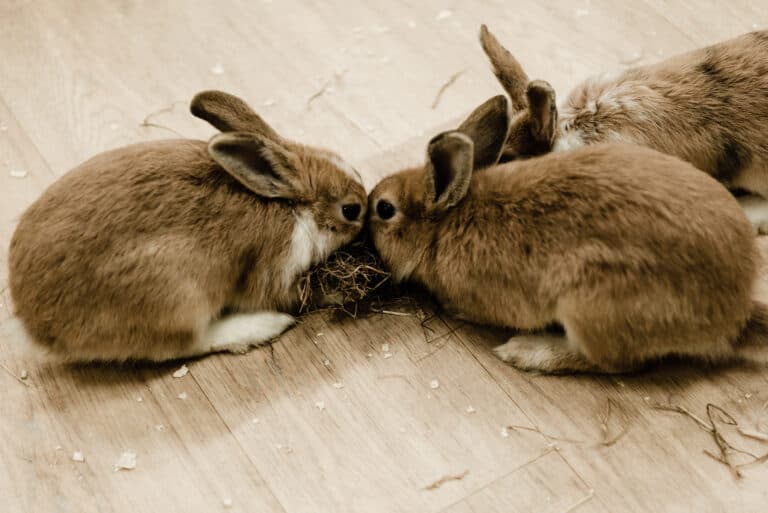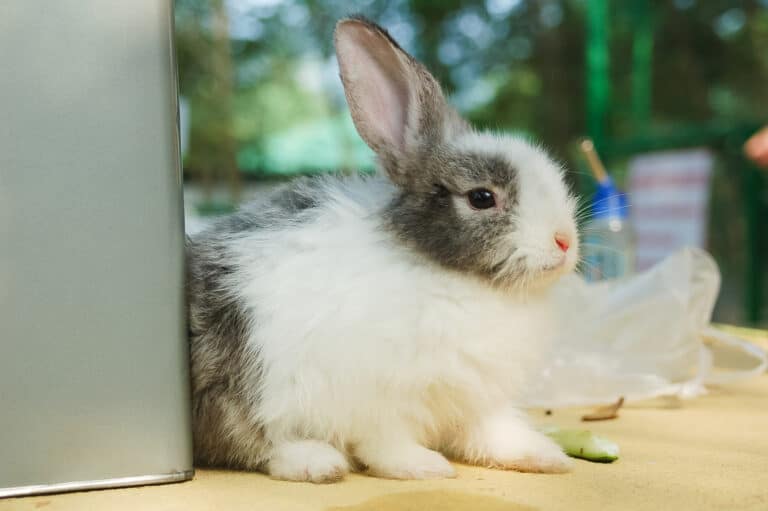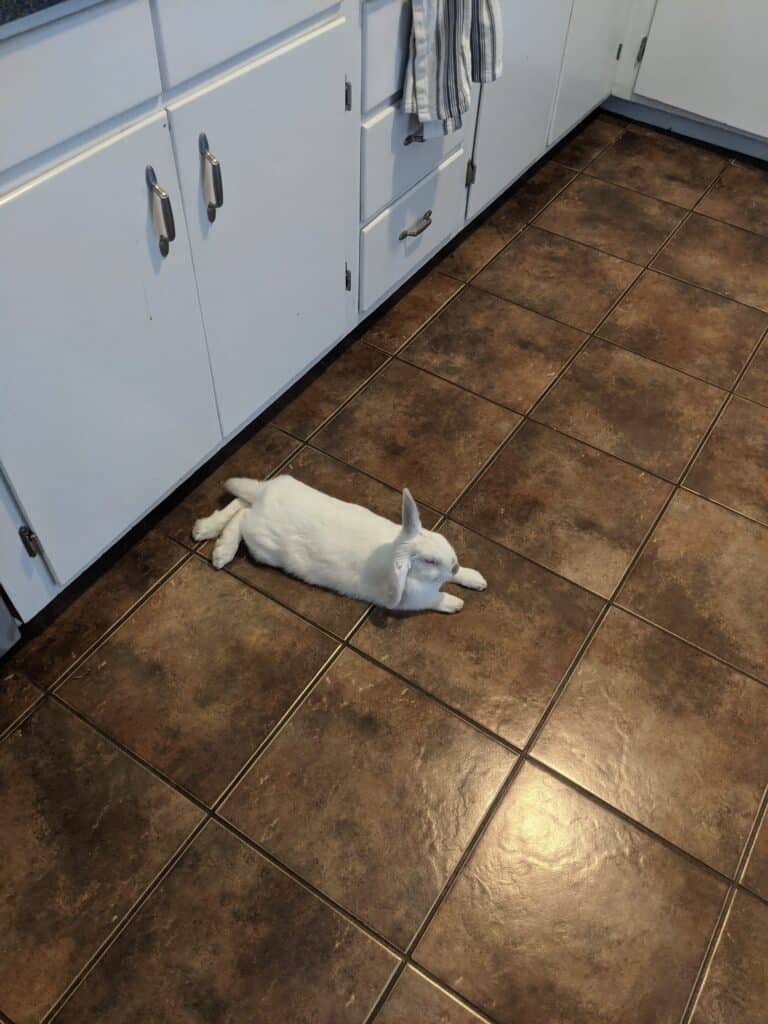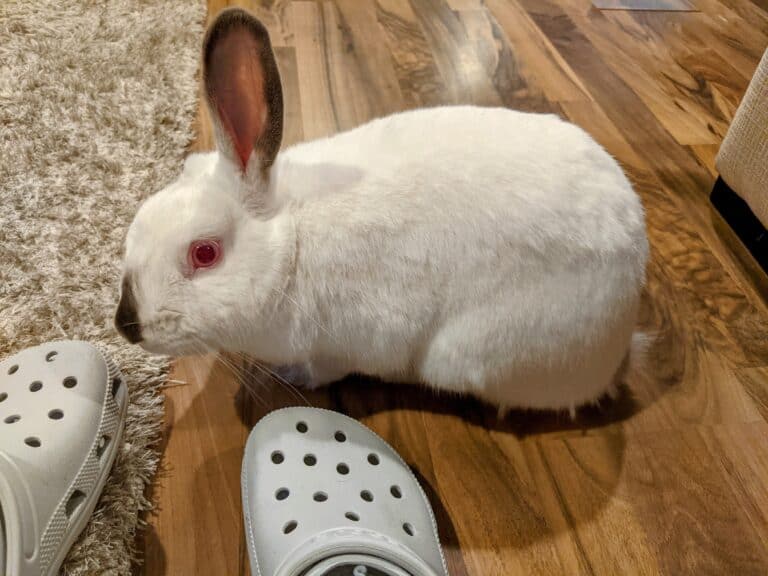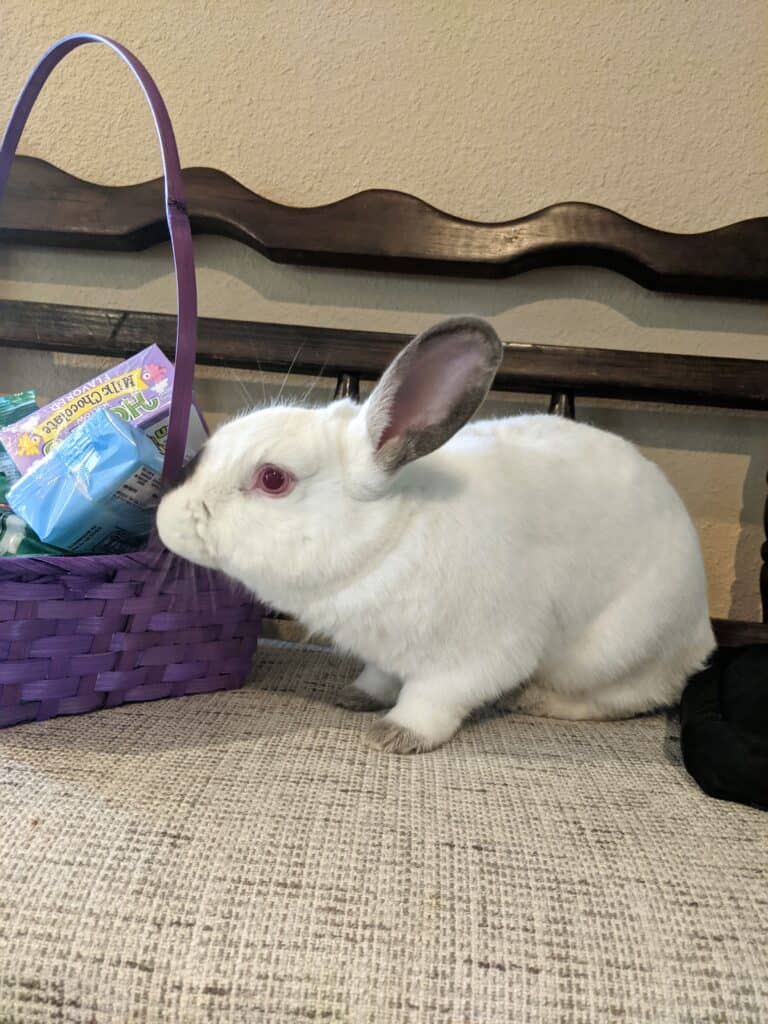Did My Rabbit Just Growl at Me?
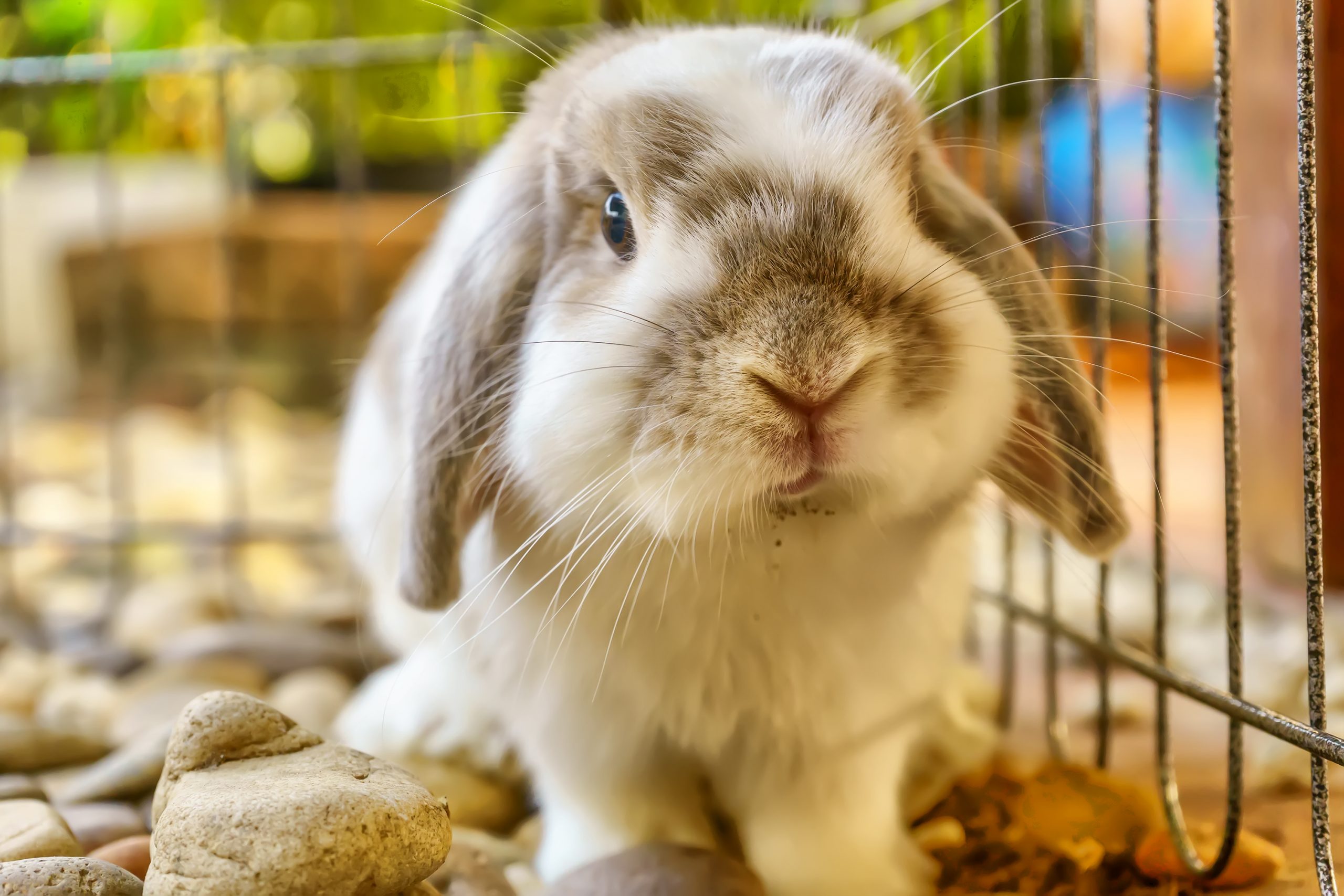
If you’re like most people, aggression is probably the last word you’ll associate with rabbits. Such timid and shy creatures won’t have an aggressive bone in their body, you likely think. That is, until your rabbit makes a noise you’ll swear sounds like a growl!
For first-time rabbit parents, rabbit growling may not be an experience you expected to encounter. But rabbits, like other animals, can have behavior issues. Growling is just one of them.
Since each rabbit has a unique personality, not all buns growl. But if yours does and you find the behavior upsetting, know that solutions to the problem exist. Understanding your pet is the key.
Why Do Rabbits Growl?
Being prey animals, rabbits tend to be quiet creatures so as not to draw attention to themselves. So if your bun makes any loud noises, it generally means they’re scared or upset. Growling is an example of the ways your pet shows distress.
Rabbit growling means that your pet feels angry or stressed. He may be telling you that you’re invading his space and wants you to back off. If you don’t heed the warning, other aggressive behaviors may ensue.
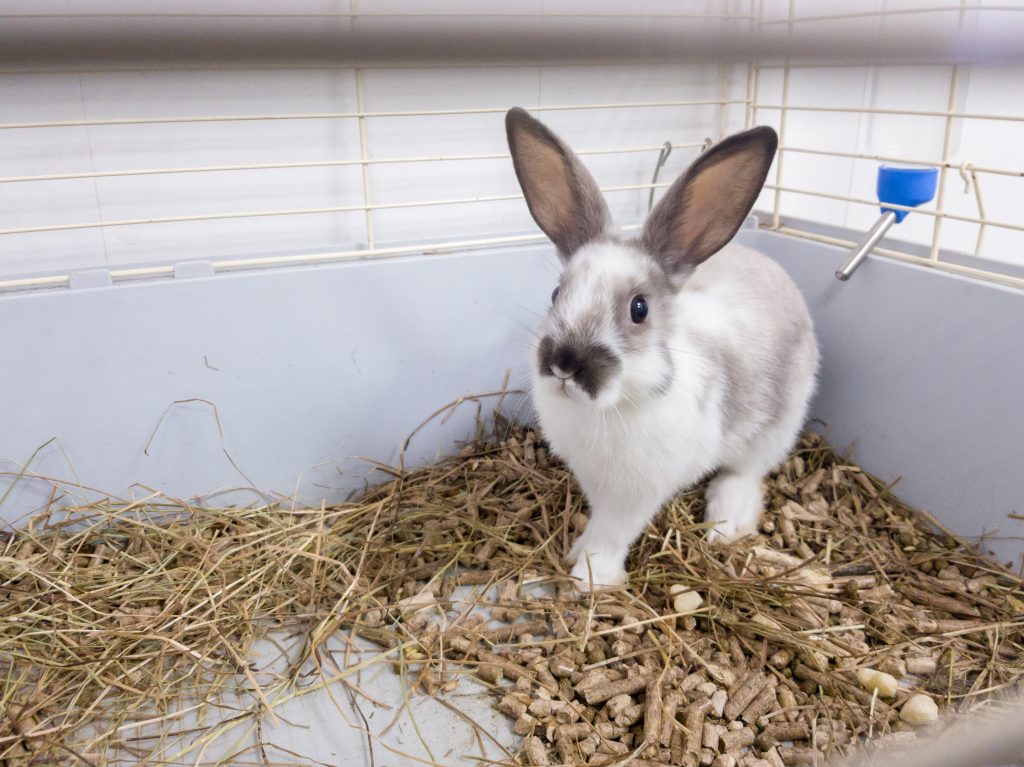
1. Fear
If you’ve just brought home your new bunny, the chances are high that he is not yet used to your presence. As such, he may see you as a threat, and when you try to pick him up, growling is his way of showing fear. This is especially true if your bun is inside the cage. Because he has nowhere to run, showing aggression is his means of defending himself.
But let’s say you’ve had your bunny for quite a while now. If he is acting scared, try to find out why he’s suddenly afraid of being held. Did he recently suffer from a scary experience, like falling off from somewhere? The trauma caused by the event may be driving him to act up.
2. Pain
You can’t readily tell if your rabbit is in pain. Because they’re prey animals, they usually won’t show any indications of weakness. If you pick up your bun who’s feeling under the weather or who has a sore back or foot, she may growl as a sign of distress. A visit to the vet can rule out any health issues.
3. Hormones
During mating season, rabbits tend to be more aggressive. They may fight with their companions or with their owners. That’s normal rabbit behavior driven by the desire to fight off rivals and to defend their territory.
Your pet’s urge to mate can lead to frustration, which may make him prone to displays of aggression such as growling.
4. Food
Because rabbits love to eat, they can get very protective of their food. So when you reach into their cage to remove their food bowl, your pet may growl to show their displeasure.
5. Your scent
Rabbits have a keen sense of smell, making them very sensitive to certain scents, such as perfumes, dust, chemicals, and the scent of other animals. If you’ve handled other creatures, your pet may smell their scent on you and become upset, especially if you held or cuddled other rabbits.
How to Deal with Rabbit Growling
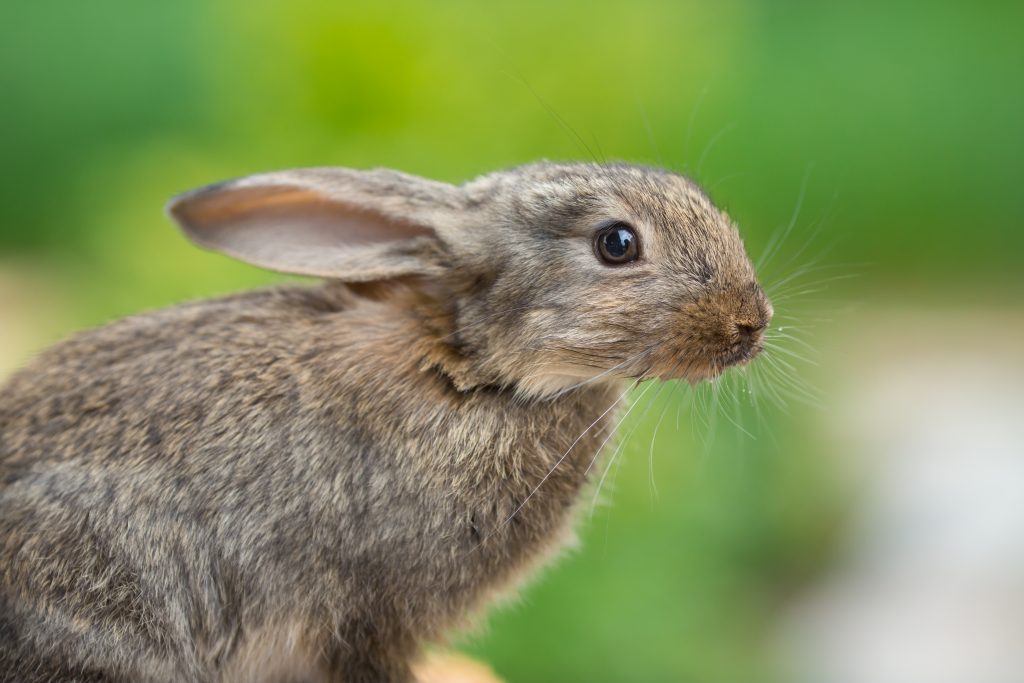
Pinpointing the cause of your rabbit’s growling will make it easier for you to come up with ways to resolve the problem.
- If your pet growls when you feed them or clean the cage: Their cage is your rabbit’s home. Your hand poking into his domain can be interpreted as a sign of aggression and may incite your pet to defend his territory. Take your bun out when you tidy up his cage or refill the food bowl and bring him back in when everything’s in place.
- If your rabbit growls when you try to pick him up: Let your pet get accustomed to being held. It can take a while before he trusts you enough to allow you to hold him close. You can sit on the floor and open the cage door. Let your pet approach you on his own but don’t touch him when he comes near. Just let your bunny check you out while talking gently to him. Repeat the exercise until your pet becomes comfortable with your presence. Placing some treats on the floor can help entice your bun to get close.
- If your bun growls when you come near: Your pet may not be expecting you, and your approach may have startled and frightened him. Talking in a calm, soothing tone as you move towards your bunny will alert him, so he doesn’t get alarmed by your sudden appearance. Moving more slowly may also help.
- If the scent of another rabbit or animal makes your rabbit growl: Take steps to get rid of the smell before you approach your pet. Sometimes washing your hands is not enough. You may need to take a shower and change your clothes before your bunny stops acting up.
- If hormonal surges are behind rabbit growling: Spayed or neutered rabbits tend to be calmer than their unaltered counterparts. If your pet becomes more vocal during certain seasons, then desexing them may be the best solution to the issue.
Why Is Your Rabbit Lunging at You?
Growling is your rabbit’s way of showing his displeasure. When your bun growls, he may also lunge at you to drive you away. Take it as a warning that something’s bothering your pet and take measures to reassure him that you mean no harm. Try talking to him, keeping your tone calm and soothing.
Do Rabbits Growl When Playing?
Each rabbit has a unique personality, so rabbit growling doesn’t indicate distress every time. Some buns growl when they play. There are those who make a game of growling and lunging at their humans in the spirit of fun. If you know your bunny well and he doesn’t look the least bit upset when he growls at you, then he may be inviting you to play with him.
Do Rabbits Growl at Other Rabbits?
Yes, they do. Rabbit growling indicates distress or anger, which the presence of other rabbits can trigger. Although they are not aggressive animals by nature, rabbits can turn nasty when they feel the need to defend themselves and their territory.
Rabbit growling doesn’t mean that you have an aggressive bunny. It’s just part of being a rabbit. You can’t change your pet’s behavior overnight but using the proper techniques, you have a great chance of having a sweet, loving bun within a few weeks. Consulting an animal expert for guidance is also an excellent option.
We hope you enjoyed this post! If you did, will you give it a share or two 🙂 Thank you! ~from Every Bunny Welcome


